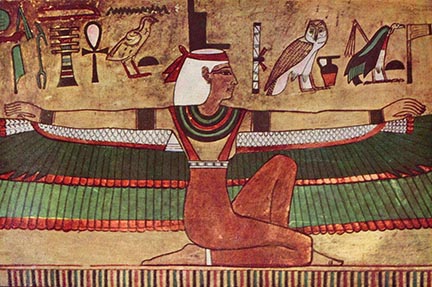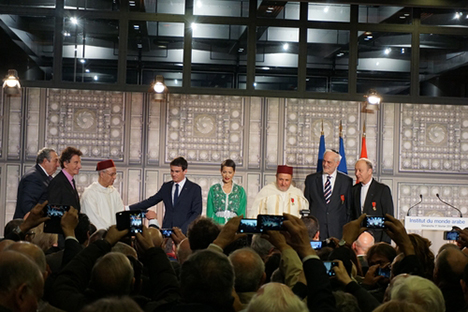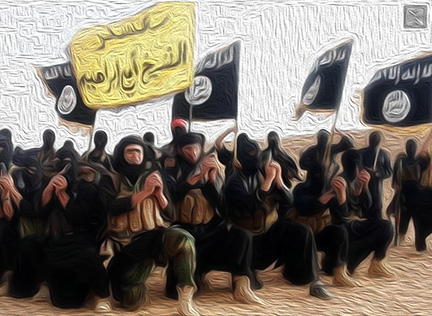
Let’s hope that in another decade we will be back to this ISIS (Isis depicted with outstretched wings (wall painting, c. 1360 BCE) and be thankful the carnage of the current ISIS is past
In the media, cyberspace, Facebook, Twitter and just about everywhere punditry is pandered to we are hearing experts expound on what ISIS really is and really wants. One of the latest broadsides is an article in the Atlantic by the journalist Graeme Wood, who pieces together quotes from scholars with comments of a couple of ISIS supporters he talked with in London and Melbourne. Here is how the Atlantic keyworded the article:
The Islamic State is no mere collection of psychopaths. It is a religious group with carefully considered beliefs, among them that it is a key agent of the coming apocalypse. Here’s what that means for its strategy—and for how to stop it.
And if one reads further on, the following claim is made:
The reality is that the Islamic State is Islamic. Very Islamic. Yes, it has attracted psychopaths and adventure seekers, drawn largely from the disaffected populations of the Middle East and Europe. But the religion preached by its most ardent followers derives from coherent and even learned interpretations of Islam.
Let’s start with the obvious. If you really want to know what makes ISIS tick, avoid anything a journalist who seems to know little or nothing of the history of Islam says, even if he goes to the experts. Also, what somebody willing to talk to the journalist and not smash in his head with a rock (a point raised in the article as part of ISIS strategy in Western countries) says ISIS is or wants is probably not going to help you understand what the people who claim to be ISIS are actually doing, nor the variety of their views.
I am not interested in rehearsing the subjective misreadings of the article, which others have already done. But there comes a point when the bombast propagated in the media frenzy to cover this made-in-Hollywood real-life action thriller is enough already. So here are four points I want to make about the way in which the story of ISIS is being framed by many outlets in the media and why we need to move on. Continue reading Enough on ISIS already







